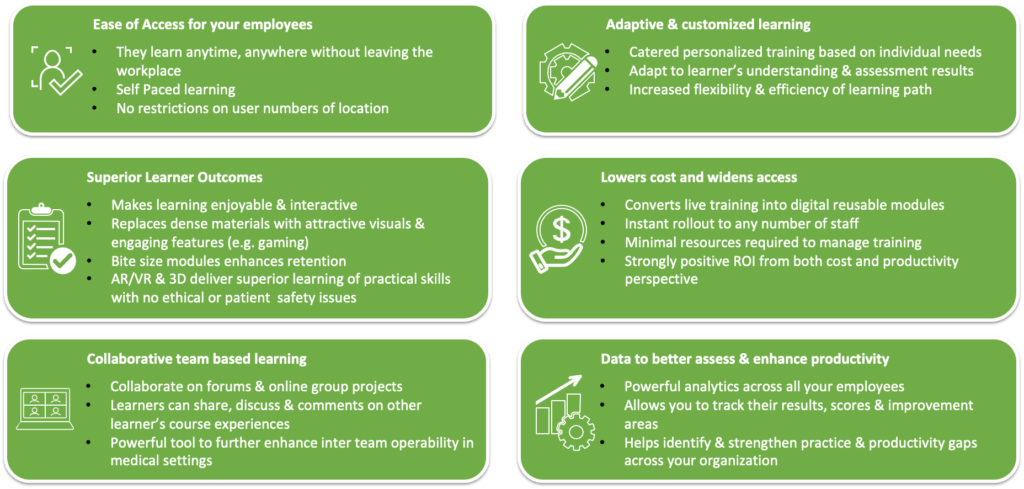With the growing sophistication and reducing cost of software technologies, e-learning has seen growing adoption over the past decade across the entire education spectrum including in healthcare education. Covid paralyzed the training delivery for healthcare systems across the world and this has exponentially accelerated both the development and adoption of e-learning within the realm of medical education.
E-learning tools and features such as interactive learning and gamification have greatly enhanced the experience and learning outcomes of class room and theoretical learning for some time now.
However excitingly, e-learning features have further developed to now being able to deliver an increasing quantum of practical learning (through simulation, augmented and virtual reality and other web based modes of learning) that could earlier only be taught in an offline physical setting. As the sophistication of these technologies continue to rise exponentially, their costs have fallen as dramatically so as to make them absolutely core to the future delivery of medical education in emerging economies across the world.

